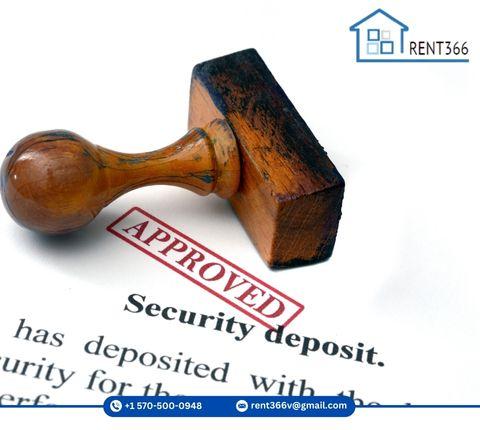How to Get Your Security Deposit Back When Renting
How to Get Your Security Deposit Back When Renting
Understand Your Lease Agreement
Before you even move into the rental property, make sure you thoroughly understand the terms of your lease, especially the conditions related to the security deposit. Know what is expected of you in terms of property maintenance, repairs, and cleaning. Familiarize yourself with the specifics on what might be deducted from your deposit, so you can plan accordingly.
Document the Property's Condition
When you first move in, document the condition of the rental property. Take detailed photos or videos of every room, paying close attention to any pre-existing damage. This documentation will serve as evidence to protect you from being charged for damages that were there before you moved in. Make sure to share this documentation with your landlord and keep a copy for yourself.
Maintain the Property During Your Tenancy
One of the best ways to ensure you get your security deposit back is to take good care of the property during your tenancy. This includes regular cleaning, promptly reporting any repairs needed, and avoiding any unnecessary wear and tear. Treat the property as if it were your own, and make sure to follow any specific maintenance requirements outlined in your lease.
Communicate with Your Landlord
Open communication with your landlord is crucial. If there are any issues that arise during your tenancy, such as repairs or damages, inform your landlord immediately. Keeping them in the loop will not only help in maintaining the property but also build trust, which could be beneficial when it’s time to get your deposit back.
Perform a Thorough Move-Out Inspection
Before moving out, perform a thorough inspection of the property. Use the documentation from when you first moved in as a reference. Clean the property thoroughly, fix any minor damages, and ensure that everything is in the same condition as when you moved in, minus normal wear and tear. Consider hiring a professional cleaner if necessary.
Request a Pre-Move-Out Inspection
Some states allow tenants to request a pre-move-out inspection. This gives you the opportunity to address any issues that might lead to deductions from your deposit. Your landlord will inform you of any necessary repairs or cleaning, giving you the chance to correct them before officially moving out.
Return All Keys and Items
Make sure you return all keys, garage remotes, and any other items that were provided to you during your tenancy. Failing to return these items could result in deductions from your security deposit.

Follow Up with a Written Request
After you move out, send a written request to your landlord asking for the return of your security deposit. Include your new address so they know where to send it. This letter can serve as a formal reminder and shows that you are serious about getting your deposit back.
Know Your Rights
Familiarize yourself with the local laws regarding security deposits in your area. Most states have laws that dictate how much time a landlord has to return your deposit and what can be deducted. Knowing your rights can help you take action if your deposit is unfairly withheld.
Consider Legal Action if Necessary
If your landlord refuses to return your deposit without a valid reason, you may need to take legal action. Small claims court is often the best route for disputes involving security deposits. Make sure you have all your documentation and evidence ready to present your case.
Real-Life Legal Cases: Learning from Experience
Pottsville Case: Smith vs. Jones (2019)
In a notable case from Pottsville, a tenant, Jane Smith, sued her landlord, John Jones, for the return of her $1,200 security deposit. Smith had meticulously documented the condition of the apartment upon move-in and maintained it well during her tenancy. Upon moving out, she performed a thorough cleaning and returned all keys. However, Jones claimed the deposit was withheld for "excessive cleaning and minor repairs."
Smith took her case to small claims court, armed with photos, a move-in checklist, and witness testimony. The court ruled in her favor, stating that the landlord's claims were unfounded and that normal wear and tear did not justify the withholding of the deposit. Smith was awarded the full amount of her deposit plus court fees.
Key Takeaway: Document everything, maintain the property well, and be prepared to stand up for your rights in court if necessary.
Massachusetts Case: Brown vs. Green (2021)
In Massachusetts, a tenant named Tom Brown faced a similar situation with his landlord, Sarah Green. After living in the rental property for two years, Brown moved out and requested the return of his $2,000 security deposit. Green claimed that Brown had caused significant damage, including stains on the carpet and holes in the walls, which required extensive repairs.
However, Brown had documented the property’s condition at move-in and kept all communications with Green, including her acknowledgment of certain pre-existing conditions. When Green refused to return the deposit, Brown filed a lawsuit. The court found that the landlord had not provided sufficient evidence to justify withholding the deposit and ordered her to return the full amount to Brown.
Key Takeaway: Always document pre-existing conditions and keep all communication records with your landlord.


Comments
There are no comments yet
Leave a Comment